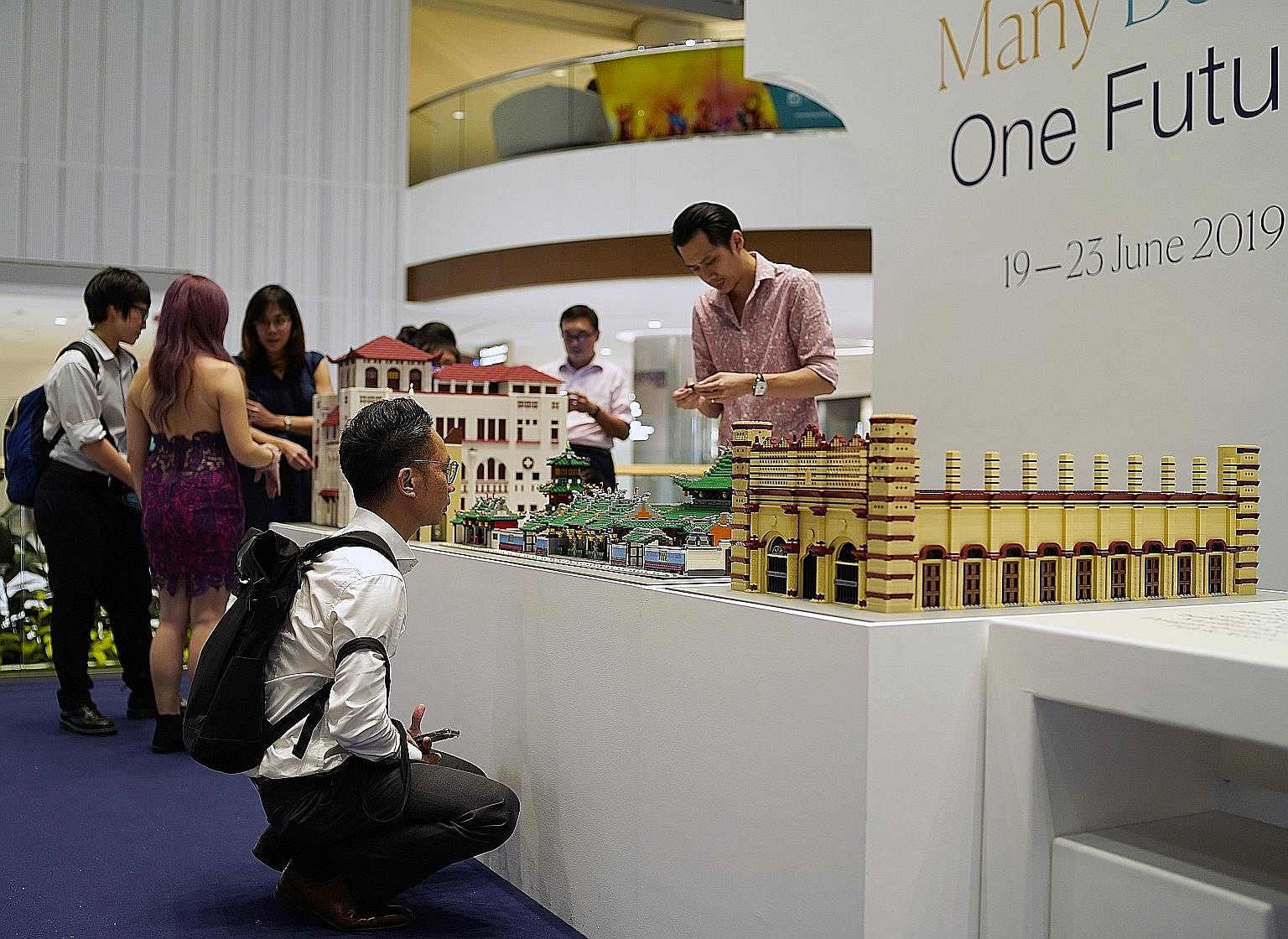They hail from different religions, academic disciplines and social circumstances, but the speakers and panellists at an inaugural inter-faith conference in Singapore were bound by a common goal: How to break down barriers to religious harmony, tackle radicalism and foster social cohesion.
Three key topics emerged on the second day of the International Conference on Cohesive Societies (ICCS) yesterday: How technology can be used to fight extremism, the root causes of radicalism and the need to engage young people.
The experts dug deeply in a series of discussions and presentations lasting more than five hours at the Raffles City Convention Centre, spearheaded by a keynote address from Jordan's King Abdullah II, a global leader in championing inter-faith understanding.
In a call to tackle what he termed the world's "single most" important threat - the attack on inter-faith harmony, mutual respect and trust - King Abdullah drew attention to how technology is exploited by extremists to plot, recruit for, arm and publicise their atrocities.
"We must do better," he told the audience of 1,000, comprising academics, government officials and members of religious and civil society groups.
Besides initiatives by governments to strengthen collaboration against extremism, and working with technology firms to commit to reducing the spread of hateful content online, the King said moderate and positive users need to reclaim the online space.

"Young men and women have a vital role in speaking up on social media and social networking sites, and using their talent for innovation to promote mutual understanding and hope," he added.
But what kinds of online content or dialogue can be effective in tackling intolerance and radicalism?
One expert said it had to go beyond citing religious facts from the Bible, Quran or other scriptures to providing people with convincing narratives, such as personal testimonies of inter-faith leaders, and their personal struggles and frustrations.
Dr Paul Hedges, an associate professor of inter-religious studies at the S. Rajaratnam School of International Studies (RSIS), Nanyang Technological University, said: "You need to give people a narrative and a story they can buy into."
Experts also explored the social causes of people turning to radicalism and extremism, listing growing economic inequality, disenchantment with the future, and therefore alienation as issues that must be addressed.
At one plenary session, the audience heard the personal account of former white supremacist Christian Picciolini, who said it was not the radical ideology which drew him to the movement, but alienation and marginalisation and his search for identity and purpose.
Mr Picciolini is the founder of the Free Radicals Project, a United States non-profit group that works with individuals and their families to disengage from hateful and violent ideologies.
He said social services and support systems must be in place to stop people from being derailed to the fringes of life by what he called "potholes", which can span abuse, poverty, joblessness and, paradoxically, even privilege.
"We have to build human resilience. And if we want to stop this massive trend of radicalisation that we are seeing, we have to repair our human infrastructure," he said.
Another central thread which ran throughout yesterday's discussions was that young people must be engaged in inter-faith dialogue and the important role they can play in fighting the war of ideas to combat divisive ideology.
British author and historian of world religion Karen Armstrong noted that young people are speaking up for causes, citing as an example the Youth for Climate movement that originated in Belgium and galvanised students to shun classes on Thursdays to agitate for action on climate change.
She said young people should be invited to the ICCS to give their views on inter-faith matters.
Educational institutions can also equip students with basic religious literacy, something that Dr Veena Howard, an associate professor of Asian religious traditions at California State University, Fresno, said she was pushing for, so they can engage in meaningful dialogue with one another.
More such dialogue is needed. As RSIS executive deputy chairman Ong Keng Yong noted, issues affecting inter-religious relations can no longer be dealt with in isolation.
"In order for many communities to share one future, openness and acceptance are of utmost necessity," he said. "We need to have more dialogue. We need to communicate more effectively among people of all levels."

